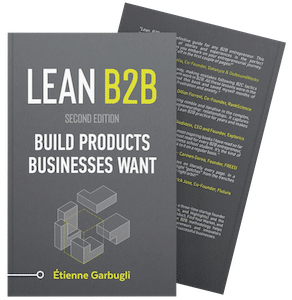You need to have a vision and the willingness to change your direction. Don’t go at it without a vision and hoping to find a market. You need a base assumption. – Hiten Shah, Crazy Egg Co-Founder
Everything that goes through your head before the first customer interactions is just hypotheses. You need to go and (in) validate. Your goal is to turn your un-tested hypotheses into facts.
Although your target market, problem, and opportunity hypotheses may ultimately prove to be wrong, they serve an important purpose.
Base assumptions, much like your vision, help you stay the course of your objectives. Assumptions are an entrepreneur’s compass.
Entrepreneurs can talk to hundreds of people and learn everything about a market, but without driving assumptions, they’ll have a hard time getting out of analysis paralysis.
It’s important to draw lines in the sand and make decisions. It’s common for entrepreneurs to start writing a business plan at this stage, but please don’t. As Steve Blank frequently says, no business plan survives the first customer contact.
Business plans are just long lists of hypotheses. You want to remain agile and flexible and keep your assumptions to a minimum.
Start Tracking Your Hypotheses – Get the Free Hypothesis Test Plan Template
For that purpose, author and entrepreneur Ash Maurya’s Lean Canvas — inspired by Alexander Osterwalder’s Business Model Canvas — is very useful to quickly iterate business models on a single page.
The Lean Canvas – A Lean Business Model Tool
The Lean Canvas is a great tool to identify the areas of biggest risk of your business opportunity. It helps objectively assess your lean business model before investing too much time on B2B business ideas.
It’s important to have hypotheses, but realize that your assumptions can deceive you…
Start Tracking Your Hypotheses – Get the Free Hypothesis Test Plan Template
More on Lean Business Model Hypotheses
- How to Create a Compelling B2B Value Proposition With Early Hypotheses
- The Importance of Creating Testable Hypotheses in B2B Customer Development
- How to Use Customer Discovery to Build a Startup: The Definitive Guide
Download the First 4 Chapters Free
Learn the major differences between B2B and B2C customer development, how to think about business ideas, and how to assess a venture’s risk in this 70-page sampler.
Working on a B2B Startup?
Learn B2B customer development with our free email course:



